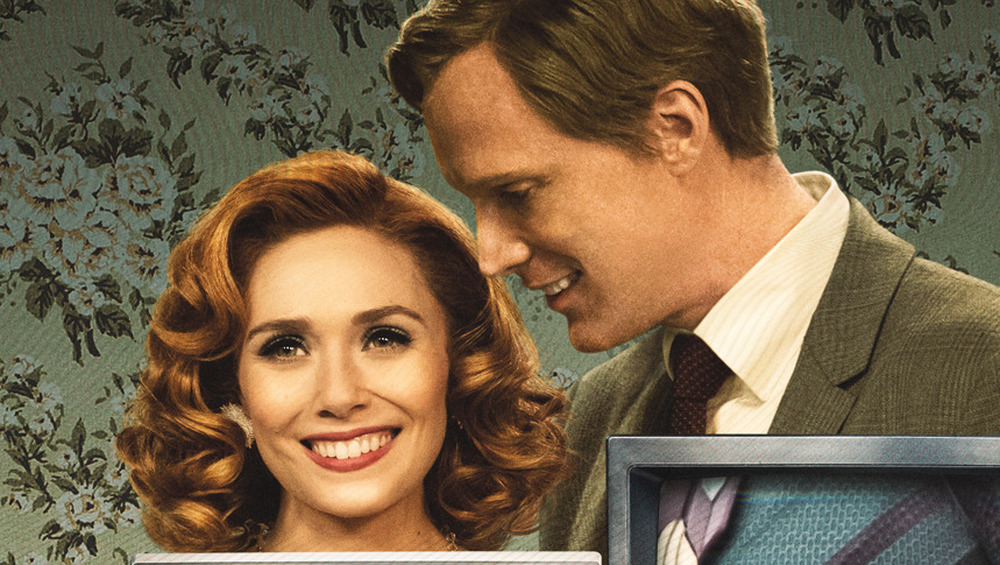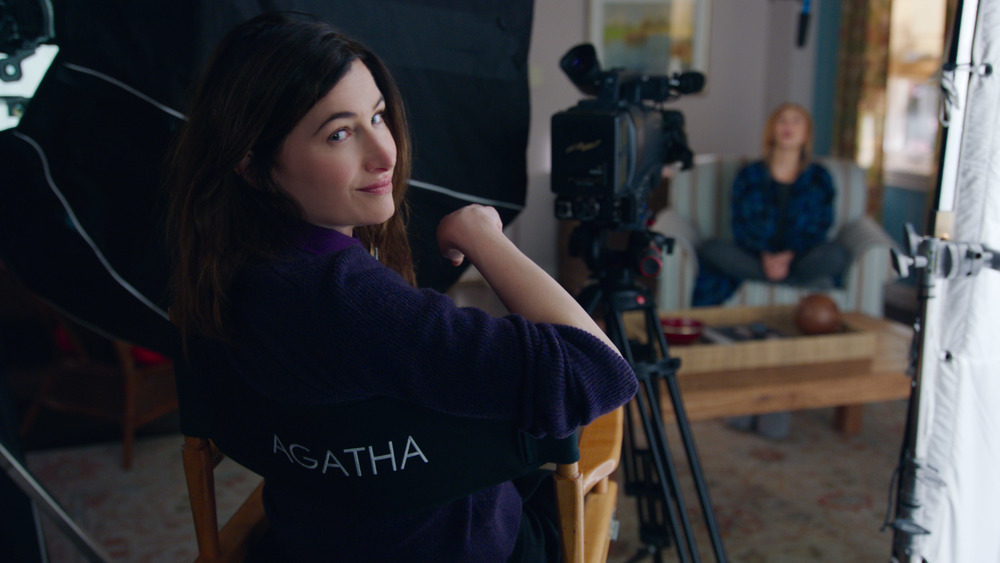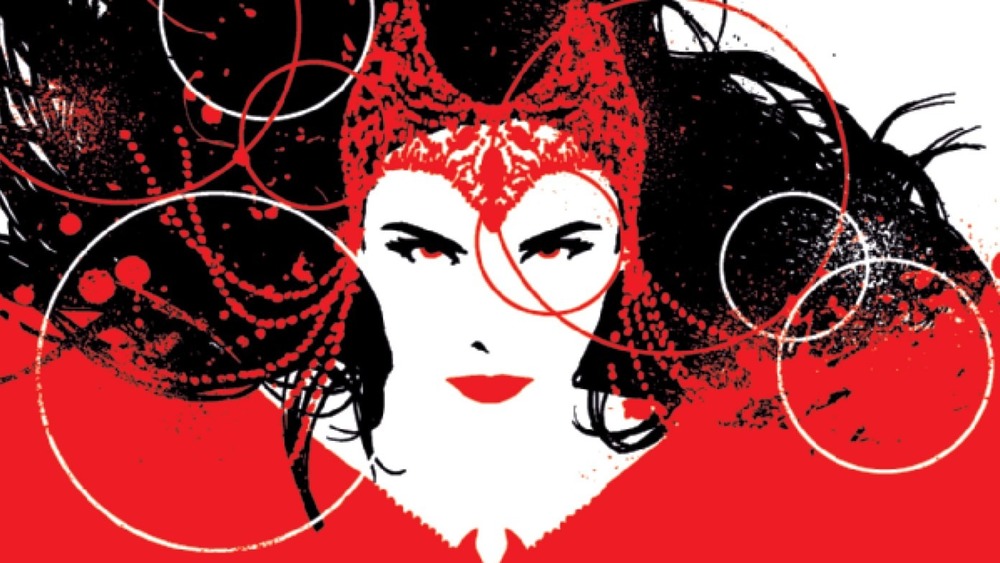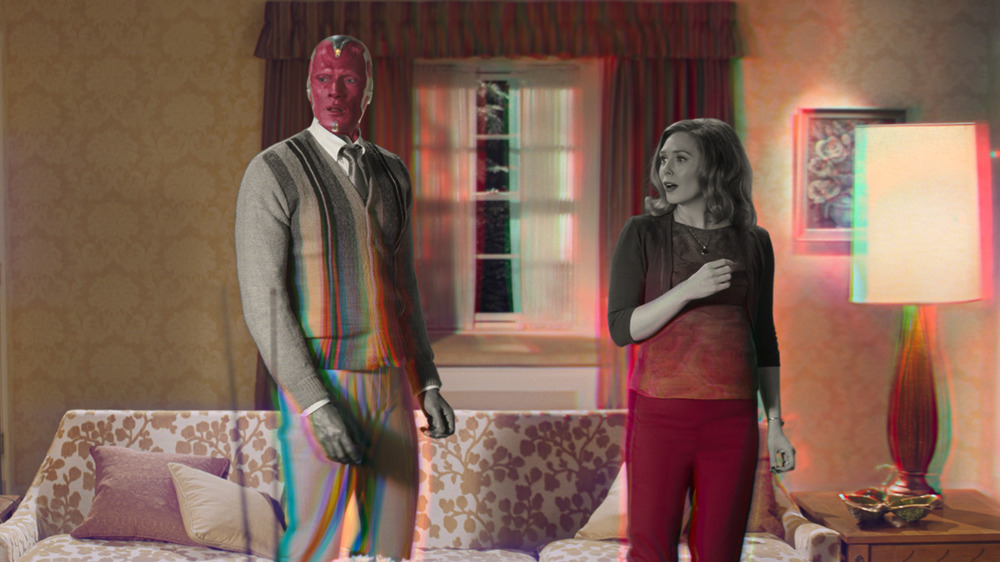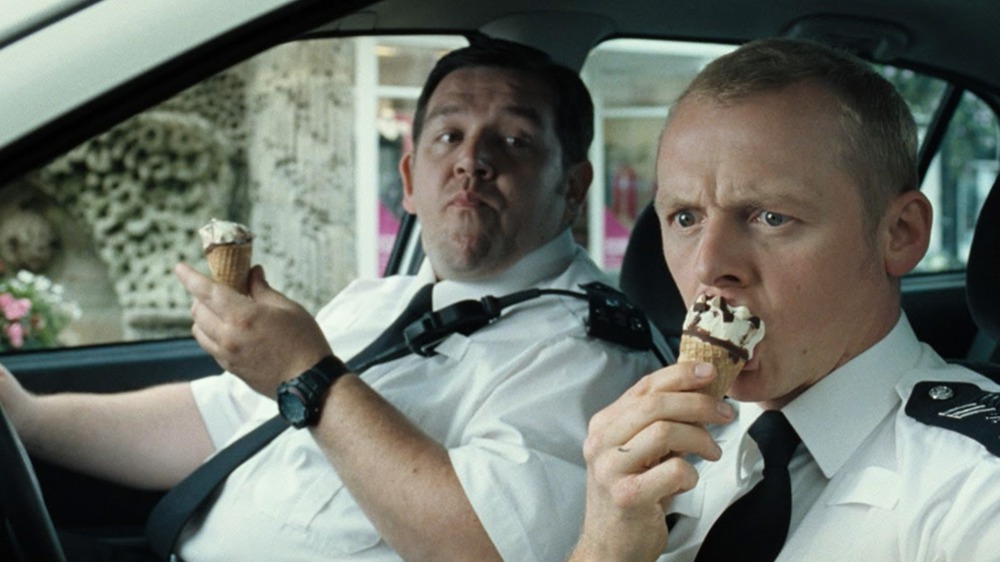Jess Hall Takes Us Behind The Scenes Of WandaVision's Breathtaking Cinematography - Exclusive Interview
Veteran cinematographer Jess Hall has shot a wide variety of films over his 20-year career, including work on such acclaimed films as the Jennifer Aniston-Jason Bateman romantic comedy The Switch and the period drama Brideshead Revisited as well as two projects for acclaimed director Edgar Wright — the buddy cop comedy Hot Fuzz, which combined a smattering of different film genres, and Don't, which was one of the hilarious faux trailers for Quentin Tarantino and Robert Rodriguez's Grindhouse.
And yet, one type of project that leaped and bounded over Hall for two decades was the superhero genre — that is until Marvel Studios and director Matt Shakman came calling on the respected director of photography for the genre-mixing Disney+ series WandaVision. Suddenly, Hall not only found himself key in helping tell the story of Marvel Cinematic Universe stalwarts Wanda Maximoff (Elizabeth Olsen) and Vision (Paul Bettany) in the way fans came to know them on the big screen; he had to imagine their lives through the lenses of several different styles of television as Wanda created an idyllic, classic sitcom-like life for her and Vision through her power of Chaos Magic.
In an exclusive interview with Looper prior to the series finale of WandaVision, Hall revealed how he prepared to film the nine-episode story arc, and the inside track he had on the creative process. Hall also discussed his work with Olsen and Bettany, and how Shakman's love of a cult favorite may have helped him land his coveted MCU cinematographer gig for the entire season, which is streaming now on Disney+.
Jess Hall had to develop a discipline for keeping WandaVision's secrets
Being the director of photography for WandaVision, there are very few people, especially with these MCU projects, who are really privy to the inside stuff, but you're right there. How difficult is it keeping all the secrets or the surprise appearances? For example, thinking about the episode with the big reveal of Agatha Harkness and Agatha's lair, it had to be a secret that was just screaming to get out, but you had to keep it all in.
It's tricky. I mean, it's not difficult when we're shooting because I don't have a life when we're shooting. I'm very busy and my life is the show. So at that point I'm really just seeing the people working on the show and it's very intense. I think what's difficult is when you go into postproduction and then press starts to build and people want to know. And one of the interesting things for me is I've got a 19-year-old, and he and his friends are all absolute Marvel nerds. So he brought me into this world, and he wants to discuss everything. And so I perfected the kind of non-expressive response when he comes up with a theory and I just have to say, "Wow. Can I... Let's see, interesting theory."
As you probably found out immediately, the MCU is extremely specific with their style of storytelling and all its interconnectivity with its shared universe. Did you study the films of the MCU? Maybe you did before when you were just a fan, as is your son.
Yeah, I did study them, and I am a fan. And like I said, it originally that came from my son. I watched the films, the early films, because they were kind of groundbreaking. But he introduced me to just how passionate his generation was, especially about these films, because they're the films that they want to go and see in the theater the day they're released. So we started seeing the films together as a family and the level of interest that he and his friends had really sort of started to kind of [make sense to me]. I started to understand much more about the MCU and what it really was. But then, when I got asked to do this project, I went back and I watched all the most important films, the ones that were critical to this particular production, so I could kind of refresh myself with them and kind of just have those in the back of my mind as we moved forward.
MCU films, Marvel comics were both sources of inspiration for Jess Hall
Were there any particular shots in the MCU films, or one shot alone, that just inspired you to say, "Oh, my God, I can't believe that I haven't seen this sort of thing before"?
I think for me, one of the real cutting-edge aspects of the work is the integration of the visual effects and the extent to which they kind of push new technology in terms of really creating an unsurpassed level of visual effects. I actually managed to attend SIGFest, which is the kind of visual effects supervisors conference, before we started shooting. And there was a great presentation by all the major houses that worked on Endgame and, for me, the way that Thanos was [created], the way that they got that performance by Josh Brolin and managed to capture that into a CG character was really, really groundbreaking. I was very interested in that.
Also, in hearing the other houses and the work that they've done, and really sort of thinking about really how I was going to work with the studio and in a show that has, I think, 3,000-plus visual effects on it, there was going to be a key aspect of the work and one that I was definitely aware Marvel did very, very well. So I think for me, if I look at the body of work, I think about that rather than a specific shot.
You invested yourself in the previous films with the MCU, but obviously a lot of these storylines are coming from the comic books in this particular series. Did you study any of those?
I did. One of the things which I really held onto when I went into WandaVision was, coming out of the movies, was the relationship between Elizabeth Olsen and Paul Bettany, Wanda and Vision. I was really touched by their scenes in Age of Ultron and [Infinity War]. I thought these are two fantastic dramatic actors and those scenes definitely resonated with me and I thought, "Okay, there's a real opportunity here to kind of bridge the gap between kind of drama, action, sci-fi and something that could really work with these two actors."
But yes, the comic books, absolutely. I had a good look at them and looked at a lot of different issues. Certainly, there were ones that really resonated with me... there's The Vision, Tom King's work, which plugs the couple in American suburbia, but also House of M is really kind of critical to understanding Wanda and her place within the Avengers and the other Scarlet Witch comics. The Final Hex was another one, [as well as] Witches Road. That they all kind of played their part. I think assimilating that visual language of those characters and getting a little bit more depth on them was really important going into WandaVision.
Collaborating with Paul Bettany and Elizabeth Olsen
Paul and Elizabeth — they know these characters better than anybody. Now, everybody has their job to do on set, but was there any interplay between you and Paul and Elizabeth? Did they have any suggestions for you? Do they get involved with you at all, or do they just say, "Ah, let's leave Jess alone."
I think they were really intrigued by what I was doing, because, I mean, the thing about experienced actors like that is they've watched a lot of crews work. They almost have this unique position of they're the stillness observing everybody doing their thing. And so my work was so kind of specific on this and that I was using period lighting instruments, I was using 47 different lenses, I was doing a lot of testing and experimenting with different color science within the camera. They were very generous with their time in terms of allowing me to shoot tests of them and so on, and then looking at the results of those. I think there was a curiosity, like all good actors, there's a great curiosity.
And so I caught them kind of looking at me and thinking, "Oh, what's he up to now?" But I will say that there's a great kind of relationship of trust, I think, as well that we have between us. And I think, at a certain point, they needed that, because they were going to look so different in all these different episodes and I was going to be lighting them in all these different ways, that it was important that they trusted me, which they did.
What I loved about episode 6 in particular, since I'm a big stop-motion animation fan, was the Yo Magic commercial. Because that's a time-consuming, painstaking process, were you involved with that aspect of filming?
Not particularly. That's the one commercial that I wasn't particularly involved in because it was completely animated. So, I mean, it was a bit of crossover on kind of style and color palette. And I obviously read the script, but really, [director] Matt Shakman kind of took over on that. There wasn't a lot of involvement from me [on that one], but I shot all the other commercials.
How Hot Fuzz paved the way for Jess Hall to WandaVision
I oddly find huge similarities between WandaVision and a previous film that you shot, Hot Fuzz, which I absolutely love. It's largely staged in a community where not everything is as it seems. Did you give that any thought working on WandaVision?
Yes, absolutely. I mean, it first came up because Matt Shakman is quite a Hot Fuzz fan, and I think that was one of the reasons he kind of was drawn to kind of think about me for WandaVision. But no, you're right, the similarities of the kind of the neighborhood in Hot Fuzz, about the greater good, is mirrored in WandaVision with the [for the] children [line] in Westview. There's sense of a community there, but everything's not okay. [Something] slightly uncomfortable going on was definitely reminiscent of Hot Fuzz.
I love everything that Simon Pegg and Nick Frost do with Edgar Wright, and there's a scene in Hot Fuzz when Timothy Dalton gets the church steeple through the chin, which makes me squirm to this day. Would you consider that to be the most painful shot that you've ever filmed?
I think so, yes. It was kind of hard to watch. I think Edgar is also a great kind of genre director. He understands genre very, very well. And so, part of his prep to me was, he gave me a box full of DVDs that I had to watch and then discuss with him. And then dispersed in that was quite a lot of [horror filmmaker] Dario Argento, surprisingly. So Hot Fuzz is this kind of crazy mix of Bad Boys meets Dario Argento meets Man on Fire. But the spire through the chin and tongue and the way that Timothy's voice changed when he started to do those lines — it was incredibly painful to watch them. It's funny reminiscing back on it and remembering how uncomfortable it was to shoot, just the image... It stayed with me forever.
